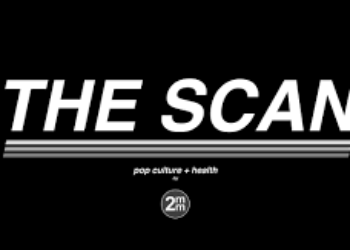Relugolix treatment significantly decreases testosterone levels in advanced prostate cancer
1. Relugolix was shown to significantly decrease testosterone levels for a sustained period of time in male patients with advanced prostate cancer.
2. The risk of cardiovascular adverse events with relugolix therapy was found to be significantly lower than with leuprolide therapy.
Evidence Rating Level: 1 (Excellent)
Study Rundown: Long-acting injectable luteinizing hormone-releasing hormone (LHRH) agonists are commonly used for androgen-deprivation therapy to achieve low levels of testosterone as treatment for advanced prostate cancer. However, the side effects of LHRH agonist therapy are not always favorable for treatment. LHRH agonists initially cause a surge in testosterone levels resulting in clinical flares of bone pain and obstructive urinary symptoms. Additionally, suppression of testosterone levels occurs over a period of weeks with LHRH agonists. Relugolix was developed to rapidly inhibit pituitary release of luteinizing hormone and follicle-stimulating hormone to lower testosterone levels. This study evaluated the efficacy and safety of oral relugolix in men with advanced prostate cancer. The participants were randomized to receive relugolix or leuprolide treatment. The study found that patients in the relugolix group had a significant decrease in testosterone levels for a sustained period of time. Also, patients in the relugolix group experienced significantly lower risk of major cardiovascular adverse events.
This randomized trial was limited by comparison of PSA levels for both study groups during patient selection. The mean and median PSA levels for the relugolix group were higher than in the leuprolide group. The difference in the PSA levels indicated the differences in severities of prostate cancer in each group with the sicker patients being treated with relugolix. Another limitation of the study was the testosterone recovery after treatment cessation. Testosterone recovery after stopping relugolix was much greater than after stopping leuprolide, which could lead to clinical flares that relugolix tried to mitigate. Nonetheless, this study was strengthened by the long-term patient follow-up between both groups. For physicians, these findings highlight an additional treatment for patients with advanced prostate cancer.
Click to read the study in NEJM
In-Depth [randomized controlled trial]: This randomized control trial enrolled 934 patients in a multicenter study from 155 centers. Inclusion criteria included: males 18 years of age or older; histologically confirmed adenocarcinoma of the prostate; and candidates for at least one year of continuous androgen-deprivation therapy. The exclusion criteria for the study included history of a major adverse cardiovascular event within six months of trial initiation. The patients were randomized to the relugolix or leuprolide treatment group in a 2:1 ratio. The primary outcome was sustained castration rate. Sustained castration rate was defined as the cumulative probability of testosterone suppression to less than 50 ng per deciliter from day 29 through week 48. Additionally, major cardiovascular adverse events from both treatment groups were recorded. The rapid action of relugolix therapy was determined by PSA response at day 15 between relugolix (79.4%) and leuprolide (19.8%) (P<0.001). Sustained castration rate was achieved in 96.7% of patients in the relugolix group (95% confidence interval [CI], 94.9 to 97.9) compared to 88.8% leuprolide treatment (95% CI, 84.6 to 91.8). Furthermore, sustained testosterone suppression levels in the relugolix group was determined to be non-inferior to the leuprolide group (between-group difference, 7.9 percentage points; 95% CI, 4.1 to 11.8). Major cardiovascular events were defined as nonfatal myocardial infarction, nonfatal stroke, and death from any cause. After 48 weeks of treatment, the incidence of a major cardiovascular events was 2.9% (95% CI, 1.7 to 4.5) in the relugolix group and 6.2% (95% CI, 3.8 to 9.5) in the leuprolide group. Additionally, Kaplan-Meier estimates of the incidence rates yielded a 54% lower risk (hazard ration, 0.46; 95% CI, 0.24 to 0.88) of cardiovascular events in the relugolix group compared to the leuprolide group. Taken together, administration of relugolix treatment significantly decreased testosterone levels for a sustained period of time and reduced the risk of major cardiovascular event in patients with advanced prostate cancer.
Image: PD
©2020 2 Minute Medicine, Inc. All rights reserved. No works may be reproduced without expressed written consent from 2 Minute Medicine, Inc. Inquire about licensing here. No article should be construed as medical advice and is not intended as such by the authors or by 2 Minute Medicine, Inc.

![2 Minute Medicine: Pharma Roundup: Price Hikes, Breakthrough Approvals, Legal Showdowns, Biotech Expansion, and Europe’s Pricing Debate [May 12nd, 2025]](https://www.2minutemedicine.com/wp-content/uploads/2025/05/ChatGPT-Image-May-12-2025-at-10_22_23-AM-350x250.png)





